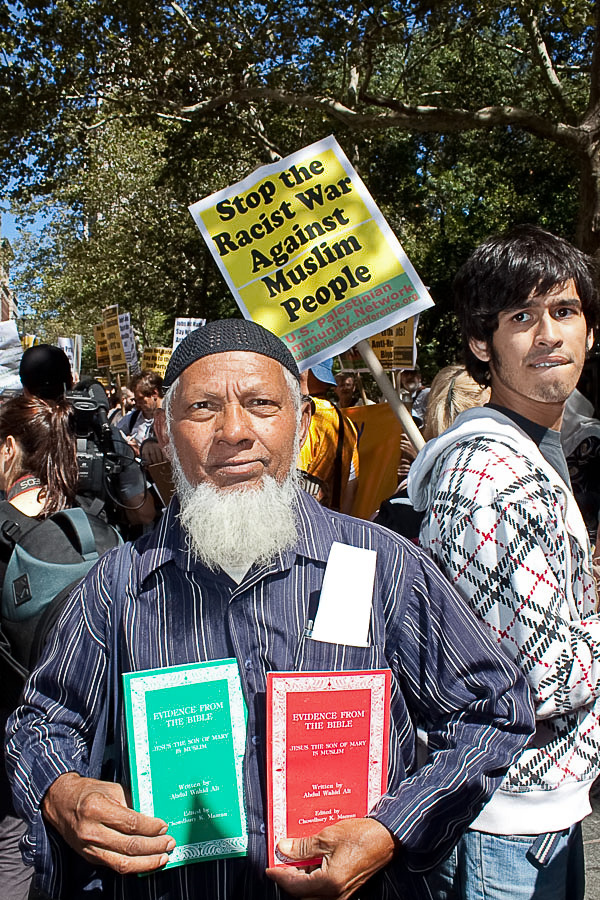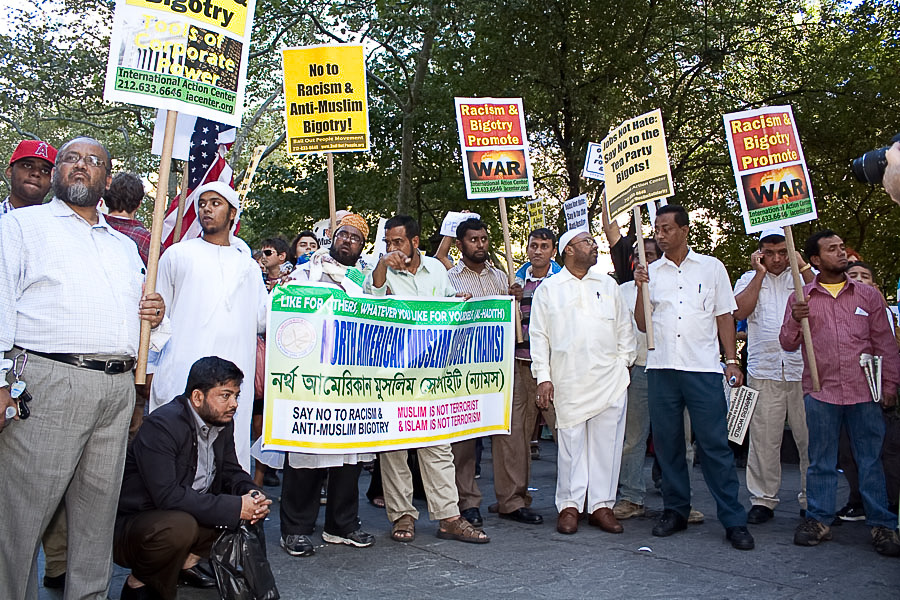
Her immigration history seemed spotless.
No arrests. No convictions.
A native of Afghanistan, Jawan had lawfully entered the U.S. to study. She met and fell in love with Tony, a naturalized citizen from Egypt, in an economics course.
After their marriage, he filed to immigrate Jawan. She became a legal resident in the early 1980s.
They raised three children, all born in the U.S. All were graduates of top-ranked American universities.
Now, over 25 years later, she decided to apply for U. S. citizenship. Her naturalization process looked like smooth sailing.
Instead, it turned out be a long, drawn-out nightmare.
Her case took over four years to complete. As a citizenship lawyer, I felt foolish when I tried to explain the unexplainable delays.
During this period, I ran into this same problem on naturalization matters more times than I care to admit.
There was a common denominator.
The clients who faced endless delays were either Muslim, Arab, or Middle Eastern immigrants.
Having served as an immigrant defense attorney for over two decades, I suspected the government was once again playing fast and loose with due process protections for immigrants.
I had no concrete proof.
Nonetheless, I made a point of advising clients from certain countries, cultural roots, and religious backgrounds that they would have to be patient because it seemed immigration authorities were taking longer than normal with cases of immigrants from their homeland.
Most were not amused. All had experienced some form of prejudice or discrimination since the incidents of 9/11.
Secret Anti-Muslim, Anti-Arab Immigration Program CARRP Exposed

As a result of these experiences, I was not surprised when the American Civil Liberties Union of Southern California and the Lawyers’ Committee for Civil Rights of the San Francisco Bay Area released a 70-page report exposing a covert government program called the Controlled Application Review and Resolution Program (CARRP).
It revealed that the U.S. Citizenship and Immigration Services (USCIS), the agency responsible for processing immigrant petitions for permanent residency and citizenship, had been secretly blacklisting a select group of law-abiding applicants.
These individuals were arbitrarily labelled as “national security concerns.”
Once so labelled, their immigration applications were cast into a vacuum where they would languish for years, if not denied for the slimmest of reasons.
Not surprisingly, the national security label was routinely based on nothing more than religious affiliation, national origin, and innocuous associations.
The report, Muslims Need Not Apply, showed that under CARRP, it became extremely difficult, if not impossible, for many law-abiding Muslim, Arab, Middle Eastern and South Asian individuals to become American citizens, or otherwise obtain legal residency or asylum in the United States.
USCIS officers and employees, in short, are required to follow FBI orders in whether to approve, deny, or suspend applications for immigration benefits. Over the years since its implementation, thousands of immigrants, like Jawan, who had lived lawfully in the U.S. for many years, were suddenly suspects in the eyes of our overly-paranoid government.
As I had suspected due to my Riverside law practice experiences, their green card and naturalization applications were excessively delayed, if not denied altogether.
Despite the ACLU report, months later, nothing appears to have improved.
In cases involving U.S. residents with Muslim, Arab, Middle Eastern, or South Asian roots, processing delays and evasive government replies continue.
Strangely, despite such obvious infringement on due process, there has been limited coverage in the mainstream media.
As I asked a few years ago, as a nation, are we so afraid of a Muslim or Middle Eastern bogeyman that we are willing to throw away our commitment to essential constitutional principles?
My article was sparked by the introduction of legislation entitled The Stop Terrorists Entry Program (STEP) Act in early 2010 by South Carolina Congressman J. Gresham Barrett.
Ostensibly, the legislation was aimed at Iranians, whom, if the bill passed, would not have been allowed to attend U.S. colleges any more. In addition, the STEP Act sought to make it illegal for Iranians to travel to the United States, except for medical emergencies and political and asylum after “extensive federal screening.”
The STEP Act was only the tip of the iceberg. It reflected a sentiment not only against Iranians, but also against all Arab and Muslim immigrants in certain political circles.
It represents a foolish national propensity to perceive Middle Eastern immigrants as bogeymen hiding in dark corners, wanting to do Americans harm.
CARPP fits into this line of thinking.
Immigration Policy Based On Ethnic And Cultural Prejudice Is Not Global Leadership

The release of the CARRP report, juxtaposed with ongoing immigration reform discussions, shows the extreme uphill battle for immigrants seeking legalization.
On the one hand, Congressional leaders debate whether any immigrants who entered unlawfully should be given a path to earned citizenship.
On the other hand, immigration authorities are engaging in undisclosed efforts to derail naturalization and lawful permanent residence petitions for many who entered lawfully and have remained law-abiding throughout their residency.
In the long run, immigration policy cannot successfully operate from a position of fear.
The degeneration of immigration policy and insecurities of immigration law enforcement agencies must cease if we are to remain a beacon of liberty and freedom for other countries to emulate.
By Carlos Batara, Immigration Law, Policy, And Politics
(Note: An earlier version of this article was was originally posted in Batara On Immigration: Personal, Passionate, And Provocative.)




